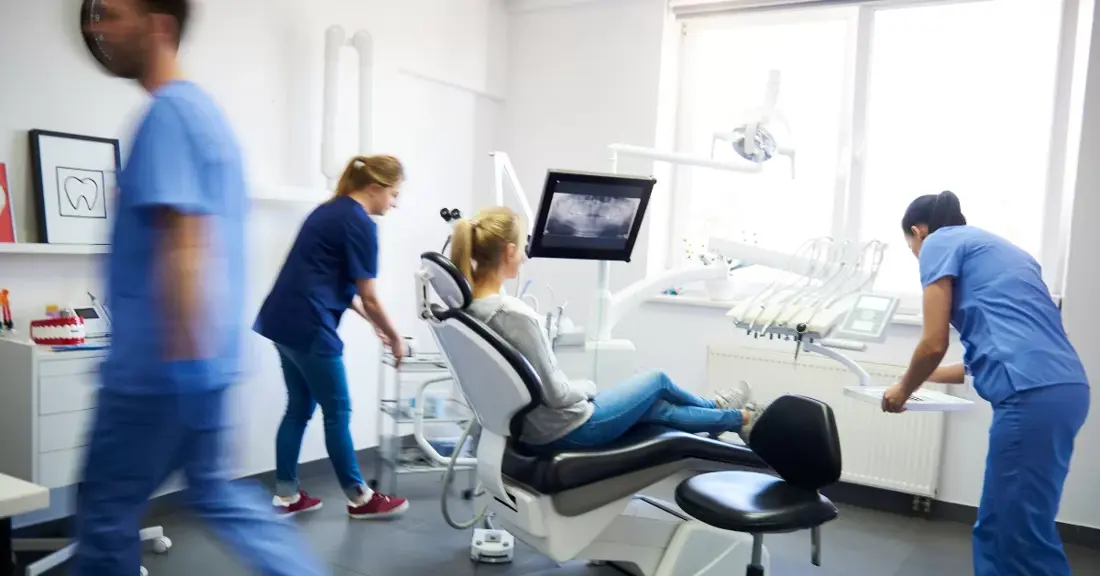What to do in a dental emergency

What to Do in a Dental Emergency
If you have ever found yourself in a dental emergency, you understand how excruciatingly painful a sore tooth can be.
Dental emergencies include accidents or trauma involving your teeth or mouth, toothache, bleeding, infections and swelling.
Always seek dental treatment when a dental emergency occurs to improve the chance of saving the tooth or teeth and preventing infections occurring or becoming more serious. At 1300SMILES, we understand how painful or distressing a dental emergency can be.
What to do in various types of dental emergencies that we see most often
Toothache
Rinse the mouth with warm water to remove food debris. If swelling is present, place a cold compress to the outside of the cheek (do not use heat)
Control moderate pain with over-the-counter pain medication
Do not place aspirin on the gum or aching tooth. Aspirin can cause the soft tissue to burn
Seek dental treatment as soon as possible.
Bleeding after an extraction
Apply a clean bandage, tissue or folded handkerchief to the bleeding socket and apply firm pressure e.g. by biting on it. Sit down and maintain the pressure for at least 10 minutes. If the bleeding continues, seek immediate dental/medical advice.
Abscesses and swelling
Dental abscesses are swellings caused by an infection inside a tooth, infection of the gum or trauma to the tooth. Abscesses are often painful, but not always. Abscesses can cause facial swelling or enlarged glands.
Seek immediate treatment by a dentist or doctor for facial swelling. Control moderate pain with over-the-counter pain medication. Take this in the usual way and do not apply the medication to the abscess itself. Use cold compresses to help control swelling. A dentist or doctor may prescribe antibiotics to reduce infection, however, antibiotics will not remove the source of infection. Seek prompt dental treatment. An abscess will not heal itself, and antibiotics will not cure the problem.
Bitten lips or cheeks
A lip or cheek can be bitten while eating, as a result of a fall or after a local anaesthetic. The area may be very sore and swelling and infection can occur. If a numb lip or cheek is sucked, bitten or rubbed, it can be damaged without realising it.
The area often looks like a chemical burn and may be misdiagnosed as such. Treat a bitten lip or cheek with warm, saltwater mouth rinses to promote healing (half a teaspoon of salt in a cup of lukewarm water. Seek advice or treatment from a dentist if an infection occurs.
Jaw pain
If you are having trouble eating or opening your mouth due to jaw pain, or you experience jaw pain when waking, seek medical or dental treatment to diagnose the source of the pain. To alleviate jaw pain in the short term, apply a cold compress. Take an anti-inflammatory medication such as Ibuprofen
Whatever type of dental emergency you have you should always contact your 1300SMILES dental practice as soon as you can. Getting to see an oral health professional as quickly as possible can, in many cases, limit the amount of discomfort, pain or inconvenience you are experiencing. So, pick up the phone and ring us on 1300 764 537